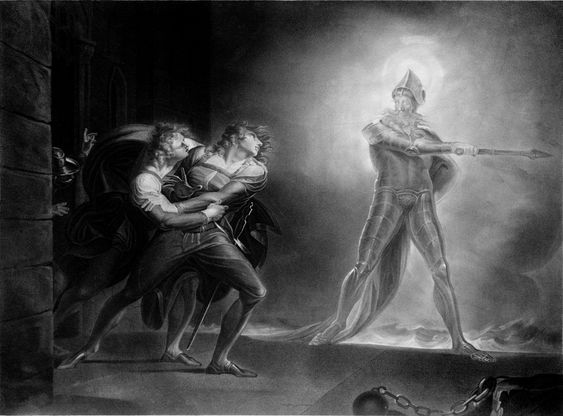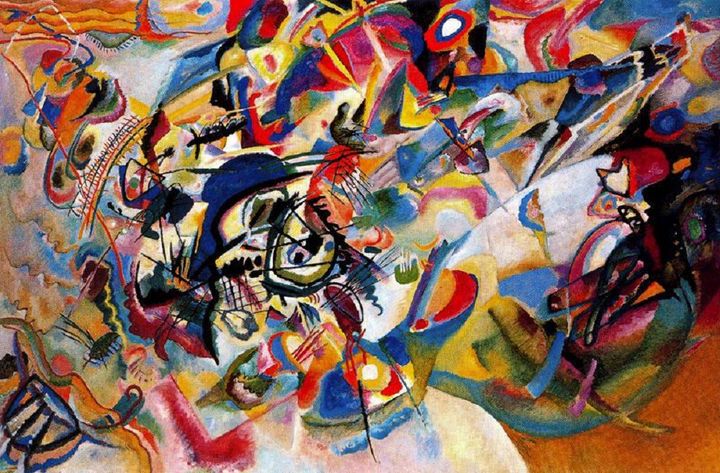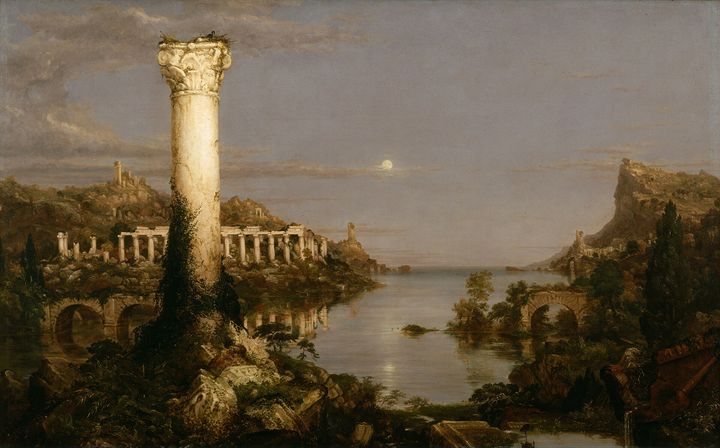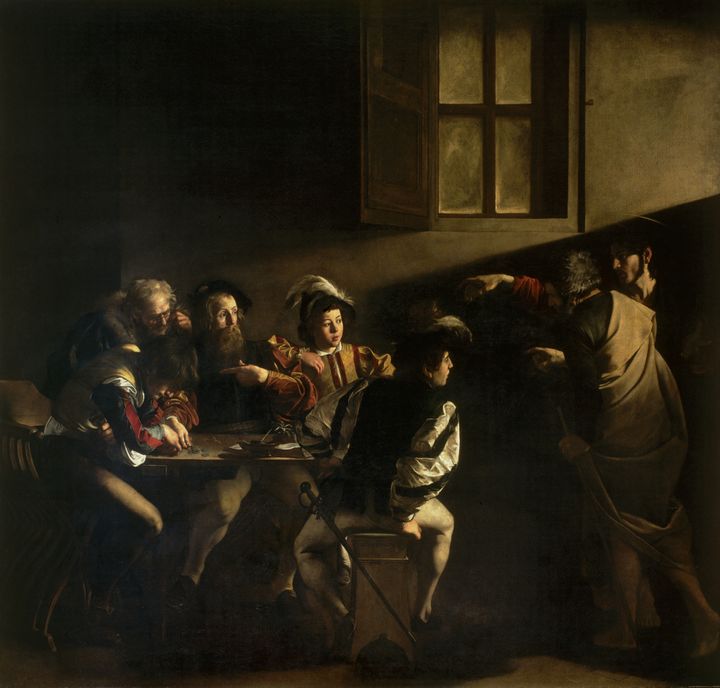Hamlet and Seeking Guidance in the Past
"... Something is rotten in the state of Denmark."

📩 If you have any questions, comments, or suggestions - please contact Guillermo Pablos Murphy on Tela:
tela.app/id/guillermo_pablos_murphy/621afa
🤝 Add Guillermo Pablos Murphy on LinkedIn:
linkedin.com/in/guillermo-pablos-murphy
🌎 How to join Tela Network:
tela.network/join
📺 Watch a version of this article on YouTube:
"... Something is rotten in the state of Denmark."
In Scene Four of the First Act of Hamlet, the young prince is waiting for a ghost.
In the distance, there are the sounds of a drunken party, a party his uncle, King Claudius, is hosting. The same uncle who took the crown of Denmark and married the queen after her husband, the previous King, Hamlet’s father, died.
HAMLET
The King doth wake tonight and takes his rouse,
Keeps wassail, and the swaggering upspring reels;
And, as he drains his draughts of Rhenish down,
The kettledrum and trumpet thus bray out
The triumph of his pledge.
In this scene, Hamlet mourns for the present reputation of his father’s kingdom. He resents Denmark’s current standing among other nations. They think of his father’s kingdom as a nation of drunken pigs.
HAMLET
[…] This heavy-headed revel east and west
Makes us traduced and taxed of other nations.
They clepe us drunkards and with swinish phrase
Soil our addition. And, indeed, it takes
He resents how its current squalid state undermines its noble foundations. Hamlet reflects on how an individual’s flaw, like excessive drinking, can overshadow all other virtues, and how a King’s indulgence overshadows the dignity of the kingdom.
HAMLET
So oft it chances in particular men
That for a vicious mole of nature in them, […]
Their virtues else, be they as pure as grace,
As infinite as man may undergo,
Shall in the general censure take corruption
From that particular fault.
He also bitterly acknowledges that, historically, indulgence in these flaws is the norm. Honour is found in breaking with that norm.
HORATIO
Is it a custom?
HAMLET
Ay, marry, is ’t,
But, to my mind, though I am native here
And to the manner born, it is a custom
More honored in the breach than the observance.
On this cold night, while others drink away his nation’s reputation, he is waiting to speak to the ghost of his father. Hamlet is looking for guidance. But this just about seeking his father; it’s also about reconnecting with a time of honour and stability. The ghost embodies a noble past, distant from Claudius’ incestuous and decaying rule. Hamlet longs to return to a time of greatness, before the current corruption set in.
The ghost is an idealized past where the kingdom’s values aligned with the king’s virtues. Hamlet’s yearning mirrors a broader societal feeling of disillusionment—a sense that the current age has lost the integrity and values of earlier times. This might be delusional, but Hamlet feels this, and must wrestle with it. And when Hamlet meets the ghost, he asks:
HAMLET
[…] Wherefore? What should we do?
The ghostly King won’t speak to him; it instead beckons him to follow. And Hamlet does.
HAMLET
It will not speak; then I will follow it.
In many ways, we are Hamlet. Standing in the cold night, we stare into the dark and wait for a ghost to guide us forward; hearing the shouts of a decaying civilization.
I understand the temptation for carelessness and the unconscious indulgence in the face of dissatisfaction. It is not pleasurable to be conscious in a time of strife. And people take what they can get to try to keep themselves afloat.. Being conscious in a time of corruption can be maddening. You feel the ‘perverseness’ in the pressures of the present and, trying to find a way out, can feel very lonely. The world feels corrupt, so distant from what it feels like it could be.
The past is part of us. In Hamlet, the ghost is the past coming to demand retribution, calling until it find someone who can listen and act. Hamlet willingly engages with the ghost. He wants to confront his time with legitimacy. He wants to restore the moral order that has been disrupted. He rejects the corrupt present and tries to hold onto the ideals of the past. Hamlet mirrors a broader human experience: the yearning for a better past in the face of the present.
And yet, there is no going back. We must recognise that pretending otherwise is another vice. To wallow in nostalgia is no different from giving oneself up to the chemical and physical vices. I understand why we do it. Looking forward is difficult. It involves making the past part of you – yes, in all its nostalgic glory, but also in its deep, deep horror. It is taking responsibility for fixing the present, acknowledging that it is yours to carry forward.
Look to the past but make no mistake: The past is a ghost. In that sense, beware the ghost that seeks revenge. Beware a past that will drag you to Hades with it. Speak to ghosts, but don’t follow them.
We live in the time we live in. Chasing the past only leads us backwards. We have the present to do what must be done to reach something better. Walk in the present – you are of your time – but walk forward.
📩 If you have any questions about Tela Network - please contact Guillermo Pablos Murphy:
tela.app/id/guillermo_pablos_murphy/621afa
🌐 Consult with Tela Network's experts:
telaconsulting.pro
☕️ Subscribe to the Tela Network Podcast:
youtube.com/@TelaNetworkPodcast
☕️ Follow Tela Network on LinkedIn:
linkedin.com/company/tela-network
☕️ Follow Tela Network on Twitter:
twitter.com/tela_updates
🔔 Join the Tela Social channel on Telegram to get every new update:
t.me/tela_social
📸 Follow Tela Network on Instagram:
instagram.com/tela_updates
💹 Invest in Tela:
tela.network/invest


